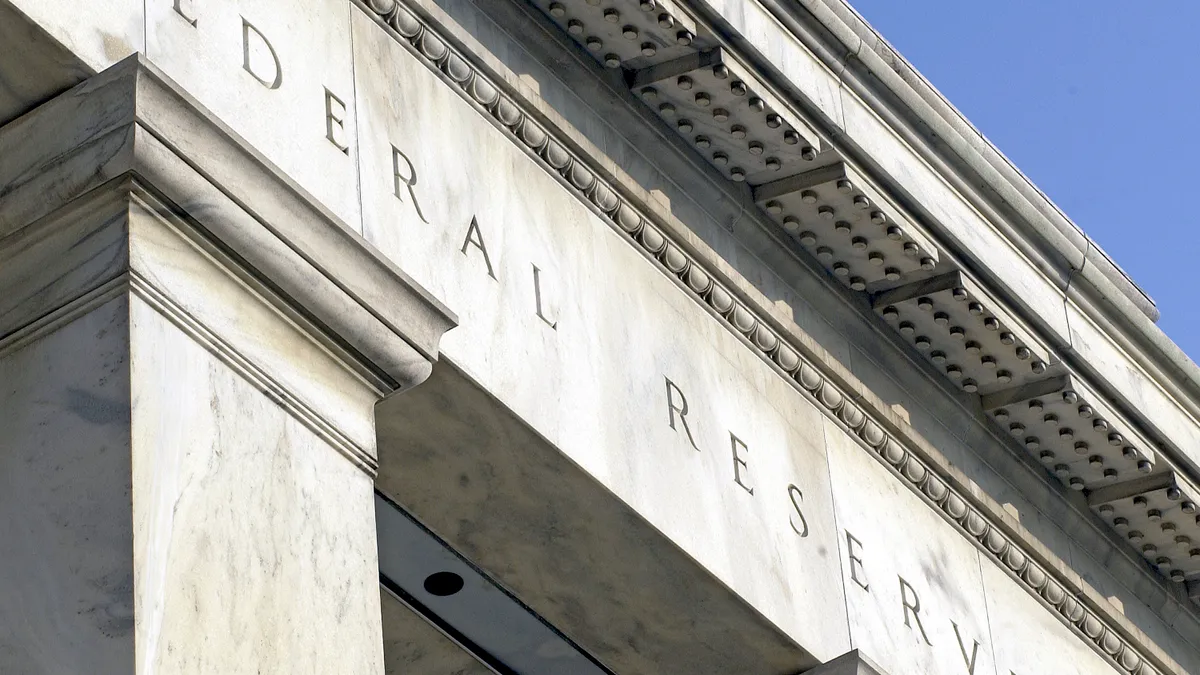Dive Brief:
-
Federal Reserve Chairman Jerome Powell said yesterday in testimony to the Senate Banking Committee that the central bank will press on with record stimulus, noting inflation remains subdued and employment is far below the Fed's objective.
-
Powell said several factors, along with monetary policy, are pushing up asset prices, including fiscal stimulus, the economic gains resulting from coronavirus vaccination, higher savings rates and the expectation of rising corporate profits.
-
"The economy is a long way from our employment and inflation goals, and it is likely to take some time for substantial further progress to be achieved," Powell said.
Dive Insight:
Since the start of the pandemic-induced downturn early last year, the central bank has sought to revive growth by pushing down the benchmark interest to a record low and purchasing $120 billion in bonds every month. The Fed needs to keep up the stimulus, Powell said.
The resurgence of COVID-19 in recent months "is weighing on economic activity and job creation," he said, noting that the outlook for growth "continues to depend significantly on the course of the virus and measures undertaken to control its spread."
Powell dismissed concerns that the stimulus will spur too much inflation, saying that the Fed believes inflation expectations are well anchored. The central bank would be able to curb a persistent increase in prices that threatens to significantly rise beyond its 2% target, he said.
"If it does turn out that unwanted inflation pressures arise and they are persistent then we have the tools to deal with that and we will," Powell said.
The Fed expects inflation to temporarily accelerate as vaccinations help revive economic growth, he said, adding "inflation dynamics do change over time but they don't change on a dime."
Some economists have warned that the U.S. risks a burst in inflation if Congress passes President Biden's proposed $1.9 trillion coronavirus rescue package.
"I agree that too much is better than too little and we should aim for some overheating," Olivier Blanchard, former chief economist at the International Monetary Fund, said in reference to Biden's proposal in a Feb. 6 tweet.
Yet "much too much is both possible and harmful," Blanchard, senior fellow at the Peterson Institute for International Economics, said. "I think this package is too much."














